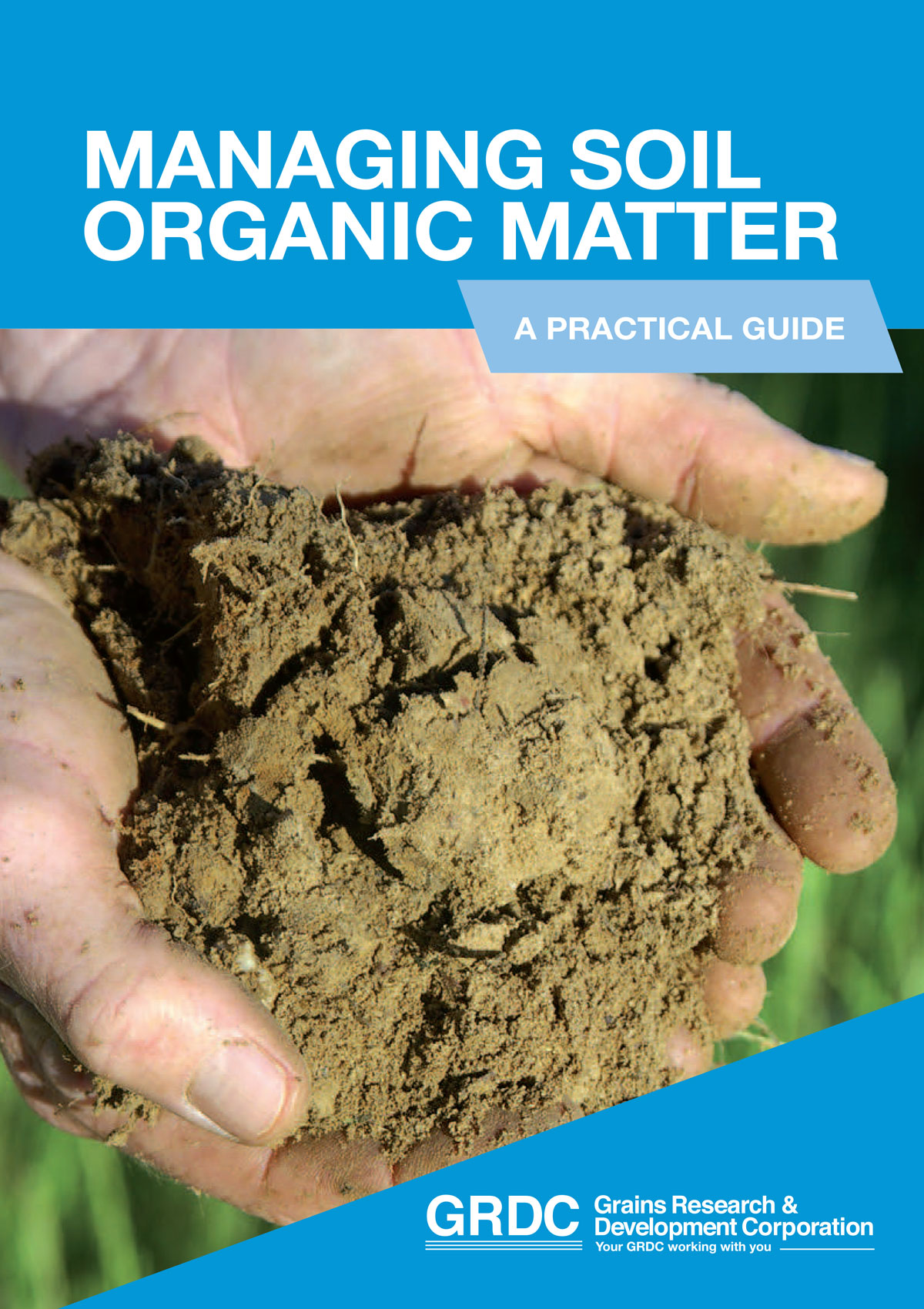Managing Soil Organic Matter: A Practical Guide
Managing Soil Organic Matter: A Practical Guide
Published: 2 Jul 2013
The one constant in agriculture is uncertainty and Australian grain growers are known globally for being ahead of the curve when it comes to adopting new farming practices to meet every challenge.
Climate change is already having a significant effect on how we farm today and how we adapt to future challenges will define what it means to farm sustainably this century. One of the biggest influences on farm productivity and its resilience to climate variations is soil health.
Soil organic matter contributes to a range of biological, chemical and physical properties of soil and is essential for soil health. This publication is a practical guide to understanding what soil organic matter is, why it’s important as well as how you can manage it on-farm to increase soil functionality and enhance production benefits.
When selecting farming practices to maximise the benefits of soil organic matter it is important to consider the most important functions that soil organic matter provides to your crop and how that will bring benefits to your soil health and future crops.
Under the federal government’s commitment to the Kyoto protocol, farmers can potentially earn credits by storing carbon in their soil, or in trees by reducing greenhouse gas emissions on-farm. This allows the grains industry to play a vital role in contributing to positive change in Australia’s environmental performance.
- 6.33 mbManaging Soil Organic Matter: A Practical GuideSoil organic matter contributes to a range of biological, chemical and physical properties of soil and is essential for soil health. This publication is a practical guide to understanding what soil organic matter is, why it’s important as well as how you can manage it on-farm to increase soil functionality and enhance production benefits.
- 3.24 mbManaging Soil Organic Matter: A Practical Guide (pp 1-55)Introduction; Chapter 1: Soil organic matter; Chapter 2: Biological turnover of organic matter; Chapter 3: The carbon cycle; Chapter 4: Soil organic matter and nutrient availability in agriculture; Chapter 5: Soil organic matter and plant available water; Chapter 6: Organic matter losses from soil; and Chapter 7: Greenhouse gas emissions.
- 2.97 mbManaging Soil Organic Matter: A Practical Guide (pp 56-110)Chapter 8: How to measure and interpret analytical results in relation to soil organic carbon; Chapter 9: Indicators of soil organic matter – what do I see, feel and smell in the paddock?; Chapter 10: On-farm management of soil organic matter; Chapter 11: How future variability in climate might influence soil organic matter in Australia; Chapter 12: Economic considerations and implications in a carbon trading environment; Chapter 13: Soil organic matter in Australian farming systems; Glossary; and References.
Download PDF
Region: National
ISBN: 978-1-921779-56-5 (print)
ISBN: 978-1-921779-56-5 (Online)
GRDC Project Code: KDI00023,

